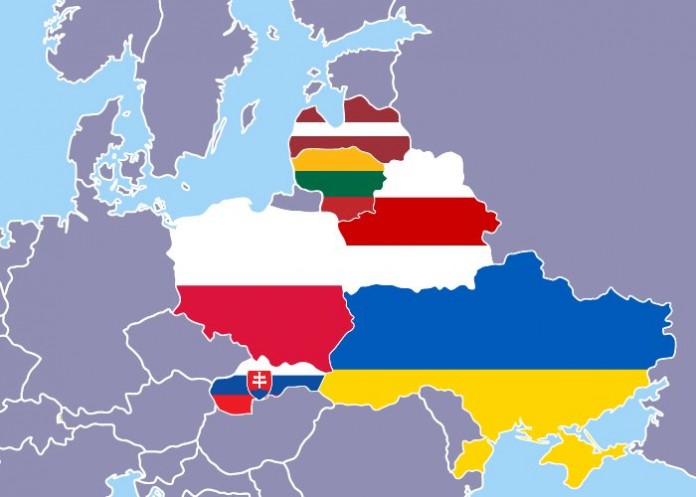- Joined
- Sep 2, 2017
- Messages
- 33,607
- Reaction score
- 5,193
- Location
- GDL/Sweden
- Gender
- Male
- Political Leaning
- Centrist
do you agree with Mackinder that Eastern Europe is the most important (geostrategically) part of the world?

.....

.....
The Geographical Pivot of History, sometimes simply as The Pivot of History is a geostrategic theory, also known as Heartland Theory.[1] "The Geographical Pivot of History" was an article submitted by Halford John Mackinder in 1904 to the Royal Geographical Society that advanced his Heartland Theory.[2][3] In this article, Mackinder extended the scope of geopolitical analysis to encompass the entire globe.
"Who rules East Europe commands the Heartland;
who rules the Heartland commands the World-Island;
who rules the World-Island commands the world."
...
Strategic importance of Eastern Europe
Later, in 1919, Mackinder summarised his theory as:
"Who rules East Europe commands the Heartland;
who rules the Heartland commands the World-Island;
who rules the World-Island commands the world."
(Mackinder, Democratic Ideals and Reality, p. 150)
Any power which controlled the World-Island would control well over 50% of the world's resources. The Heartland's size and central position made it the key to controlling the World-Island.
The vital question was how to secure control for the Heartland. This question may seem pointless, since in 1904 the Russian Empire had ruled most of the area from the Volga to Eastern Siberia for centuries. But throughout the nineteenth century:
The West European powers had combined, usually successfully, in the Great Game to prevent Russian expansion.
The Russian Empire was huge but socially, politically and technologically backward—i.e., inferior in "virility, equipment and organization".
Mackinder held that effective political domination of the Heartland by a single power had been unattainable in the past because:
The Heartland was protected from sea power by ice to the north and mountains and deserts to the south.
Previous land invasions from east to west and vice versa were unsuccessful because lack of efficient transportation made it impossible to assure a continual stream of men and supplies.
He outlined the following ways in which the Heartland might become a springboard for global domination in the twentieth century (Sempa, 2000):
Successful invasion of Russia by a West European nation (most probably Germany). Mackinder believed that the introduction of the railroad had removed the Heartland's invulnerability to land invasion. As Eurasia began to be covered by an extensive network of railroads, there was an excellent chance that a powerful continental nation could extend its political control over the Eastern European gateway to the Eurasian landmass. In Mackinder's words, "Who rules East Europe commands the Heartland."....
The combined empire's large East Asian coastline would also provide the potential for it to become a major sea power. Mackinder's "Who rules East Europe commands the Heartland ..." does not cover this scenario, probably because the previous 2 scenarios were seen as the major risks of the nineteenth century and the early 1900s.
One of Mackinder's personal objectives was to warn Britain that its traditional reliance on sea power would become a weakness as improved land transport opened up the Heartland for invasion and / or industrialisation (Sempa, 2000).


